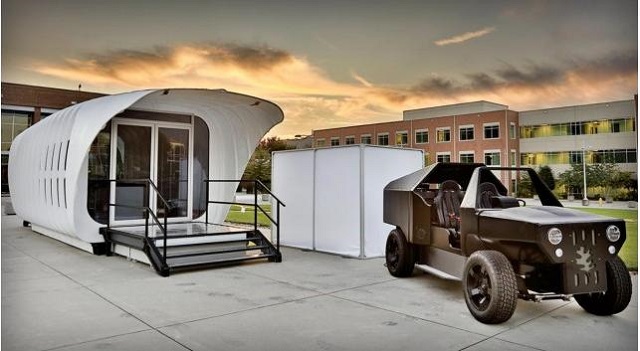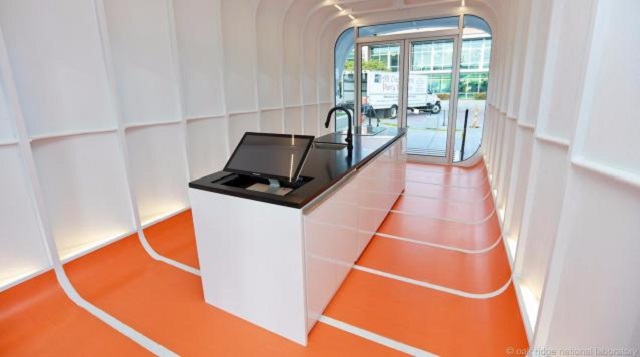Even though there have been several concepts in the past that brought together electric vehicles and shelters, none was as close to reality as the project of researchers from US Department of Energy’s Oak Ridge National Laboratory.
Bringing homes and electric vehicles together is essential for a green future. Now, the shelter and the EV developed by the Oak Ridge National Laboratory might not take home any design prizes, but the fact that they are both 3D printed makes them even more environmentally-friendly. Additive Manufacturing Integrated Energy (AIME), as the researchers have called this concept, is meant to lead to an even more integrated future.

AIME was created using the world’s largest 3D printer, which has 3D printed vehicles in the past. However, the point wasn’t to demonstrate the printer’s capability of outputting cars, but to show how the future could look like. Resembling a convertible Humvee, the 3D printed EV provides room for two occupants, while the large back compartment includes the battery and the motor.
The vehicle is entirely electric, but mileage isn’t exactly its strongest point, having a range of only 35 miles per charge. Assuming that the EV can be charged both at home and at work, the range would be great for commuting. Being powered by a single traction motor and a transmission to the rear wheels only, the car isn’t adequate for off-road trips, either. Sure, it won’t pose a threat to Tesla’s cars anytime soon, but on the other hand, this one is 30% carbon fiber-reinforced ABS plastic, and only took the 3D printer around 20 hours to create it.

The 3D printed shelter, on the other hand, has a very industrial look to it. As a matter of fact, looking at it from the inside out, it resembles a cargo container. The only thing that saves the appearances is the massive central block that includes a display and a micro-kitchen, with a faucet and sink. The multiple segments that combine to form the shelter feature a pair of small windows on one side. After all, natural light is essential for people’s wellbeing, so assuming that in the near future we’ll get to live in such concept homes, we could use as much of it as possible.
Measuring 201 square feet, the above prototype was 3D printed over the course of four weeks. Some things such as lighting fixtures and appliances are added to the project after the structure is finished. For some, that area may be to small, but the developers of the project pointed out that multiple 3D printed shelters can be bolted together, in order to create a larger living space.
Probably the most interesting aspect about this project is the way the 3D printed EV and house exchange power wirelessly. The two structures share a 6.6kW bi-directional wireless power system that relies on resonant technology to transmit power between the battery, supposing that the car is a few feet away from the shelter. The efficiency is rated at about 85%, so the future looks promising enough.
Be social! Follow Walyou on Facebook and Twitter, and read more related stories about Gaia Multitool that displays 3D printing’s practicality, or MakerBot’s acquisition of Layer by Layer.
via ExtremeTech










